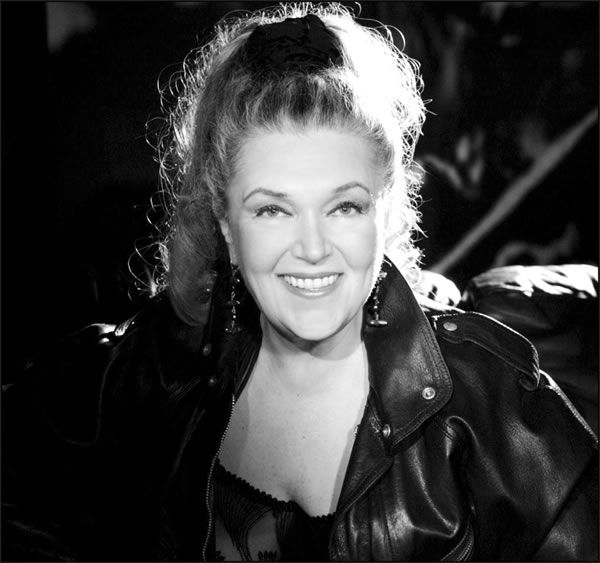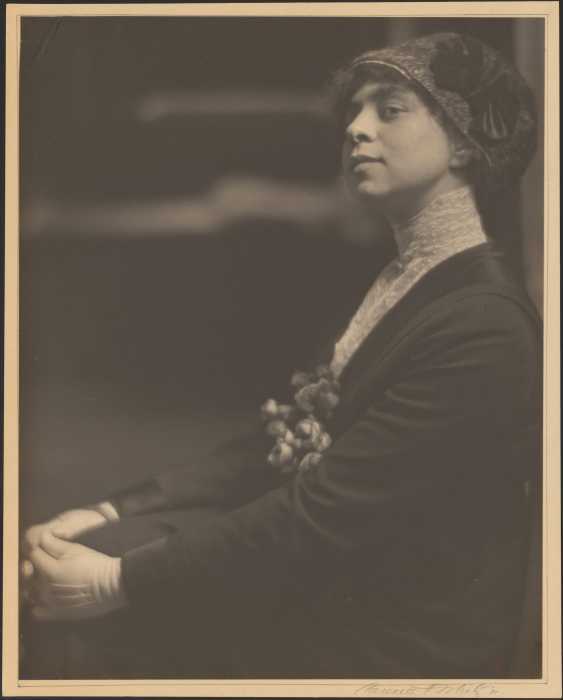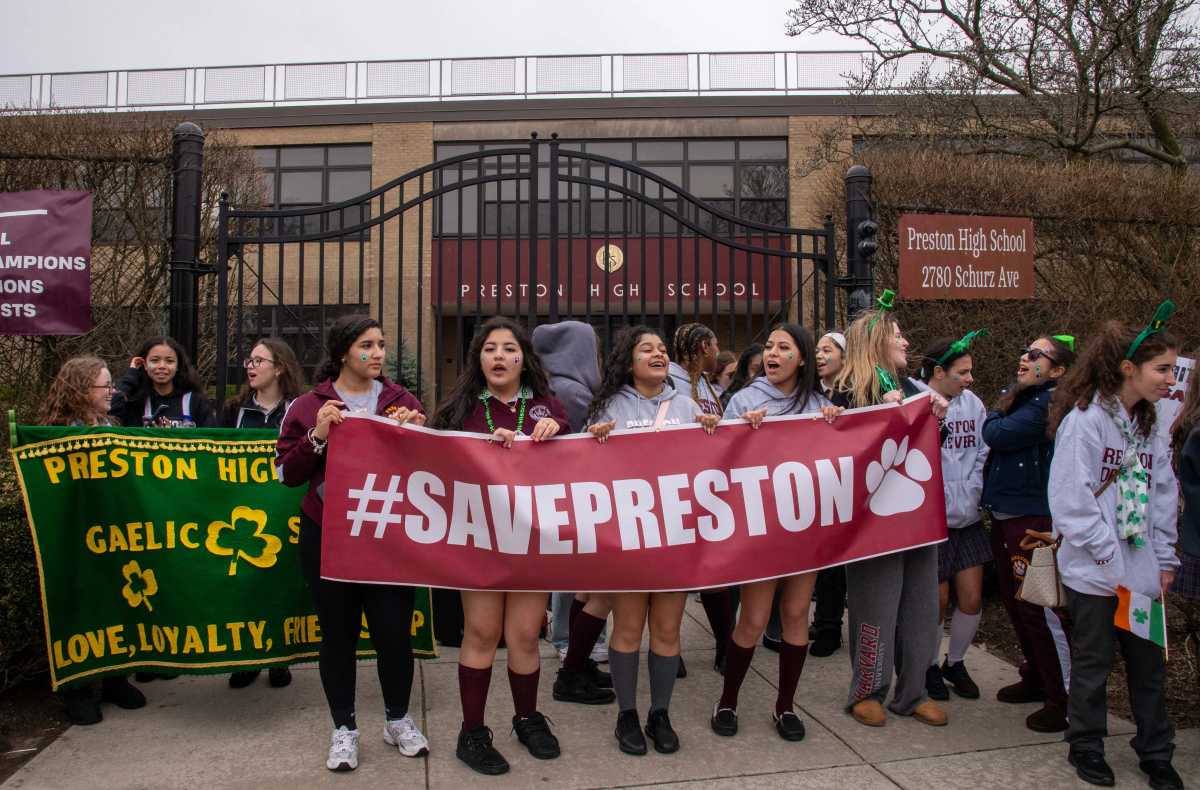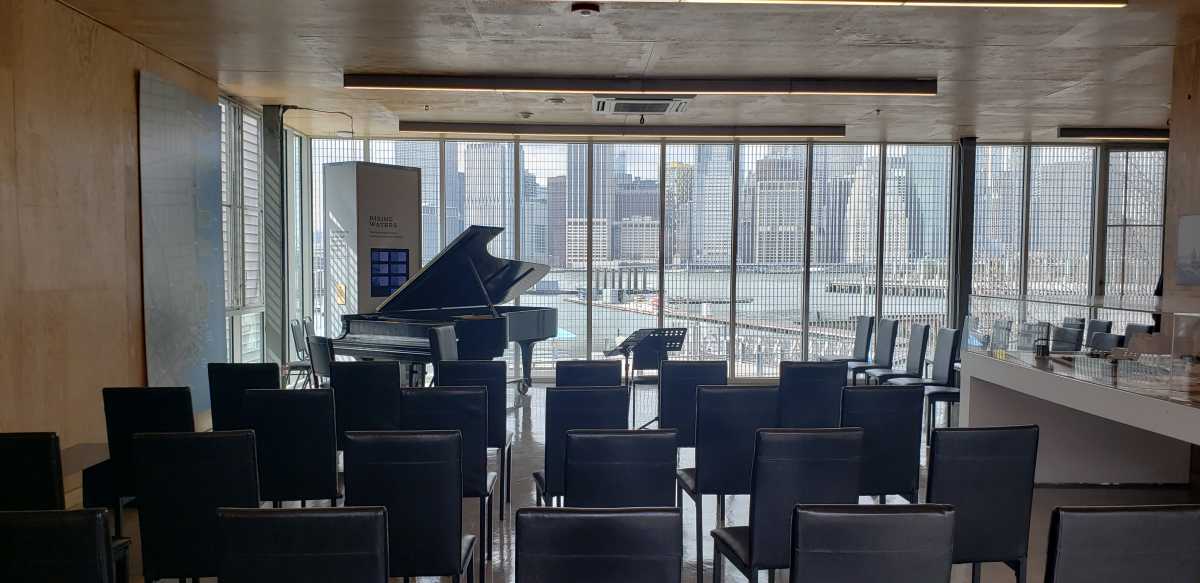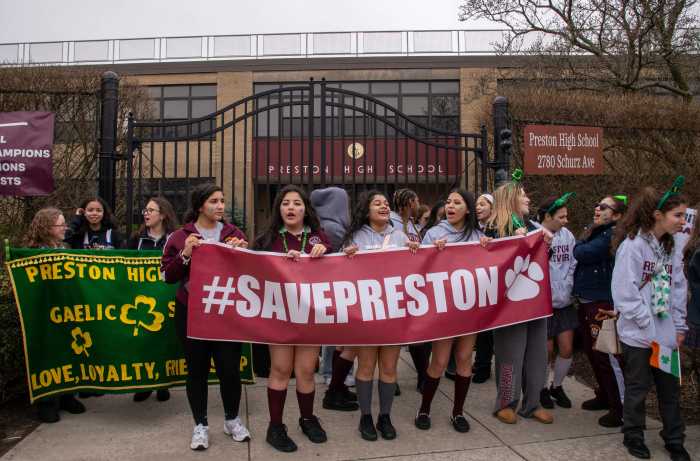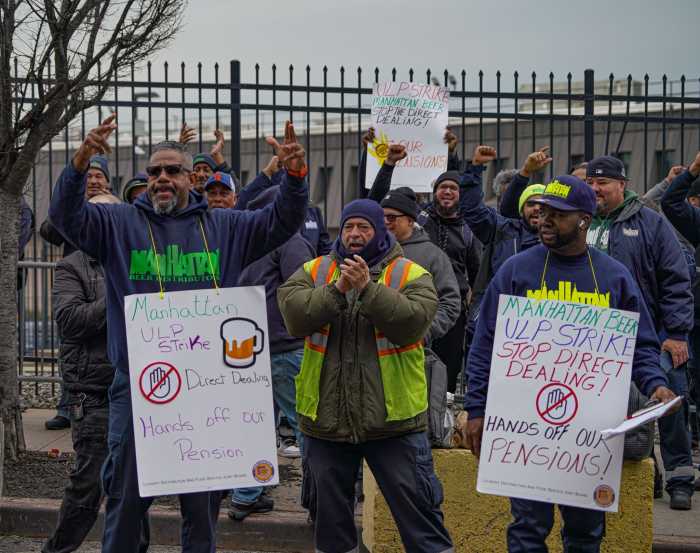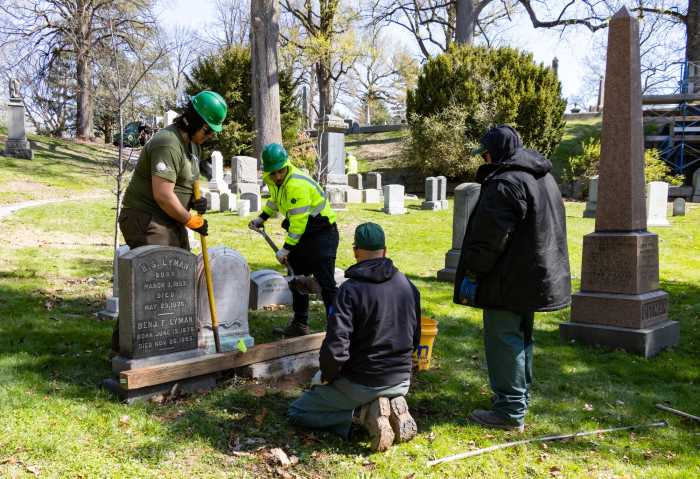BY JERRY TALLMER
Dexter sings with ‘terrifying lion-like power’
I have been knocked out by Baby Jane Dexter ever since the night nearly 20 years ago that I climbed the stairs to that little overhead room at Erv Raible’s late lamented 88s (on 10th Street between Bleecker and Hudson), where she sang, with terrifying lion-like power and silken-soft flower-petal tenderness, about love and life and death and joy and pain and beauty and strength and men and women — and, yes, a harrowing autobiographical “15 Ugly Minutes at the Bottom of Hell.” Subject: Rape.
There is so much to Baby Jane — physically, and otherwise — that the best way to put her upcoming Metropolitan Room gig in context might be to just let her talk. Is it fair to say, I ask her, that your early life experiences inform what you’re going to sing each next time at bat? Or at microphone? Or without microphone?
“Yes, Jerrrrr,” she replies — vamps — “all my life informs what I do. I have a quote from Winston Churchill that I like: ‘Success is not final, failure is not fatal: It is the courage to continue that counts.’
“This show coming up is about real goodbyes, real endings. Letting it be. It is what it is.”
One such final departure, just three months ago, was that of Abbey Lincoln — the impassioned and scrupulous singer/songwriter who was a good friend and, as the cliché goes these days, a role model for Baby Jane.
“She had a big effect on me. Especially,” says the white woman who, when it’s called for, sings black — “especially her ‘Throw It Away,’ where the key line is: ‘You can never lose a thing if it belongs to you.…’”
Your talent, for instance?
“Yes. No ‘Wish I would have,’ no ‘I could have…’ “
Throw it away, throw it away. You can’t lose it if you throw it away — as, for more than a decade, Baby Jane Dexter once did,
Where to begin? Well, at the beginning, or close to it. In Garden City, Long Island, as daughter of Dr. David Dexter, dermatologist, now deceased, and Jane Dexter, actress, who “is now in the Actors’ Home in Englewood, New Jersey, and I go to see her every week.
“So I was a kid, going to school…”
What school?
She prefers not to answer that.
“…going to school and driving a taxi in Hempstead and going into the city at night to be discovered. And I went to a talent show, and they told me I couldn’t be Jane Dexter because there already was a Jane Dexter in the union, and I said That’s my mother, she’ll share, and they said that’s no good, and I said okay, I’ll be Jane Dexter Jr., and they said that’s no good either, and I said how about my legal name, Jane N. Dexter, and the guy from AFTRA said no, because will be expecting a duo to come out, Jane and Dexter.
“So then Michael Luckman, the publicist for the Parents Aid Society, named me Baby Jane and got me a job going from door to door by van with a plastic uterus while the head of the clinic gave out birth-control information from the back of the van.”
Then, when she was still a kid, this other thing happened. “Wait!” she says, holding up a hand while she hums a few lines to bring it all back:
“She left the subway exit
and headed toward her car.
It was one of those perfect evenings,
like perfect evenings are…”
“Drey Shepperd and I wrote that a long time after the event, maybe ten years later. He wrote the words, the lyrics, I wrote the music.
“The guy — the perpetrator — was a very handsome guy with a big Afro. He worked in a showcase restaurant on West 9th Street, not too far from Trudy Heller’s place. I was warned to stay away from him, but I was young, seventeen or eighteen, and I was a jerk.
“I went to his apartment somewhere in Harlem and was brutally raped.”
She stops, thinks. It hits home on me at this moment that in all the years I’ve known her, talked with her, laughed with her, written about her, she’s never until now told me any of these particular details.
“At the time,” says the Baby Jane who has spent so much of her life caring for others, counseling troubled misfits, adults, adolescents, older people, particularly women and/or victims of AIDS — “at the time, I felt complicit. The funny thing is, the guy ended up dying at 26, of heart attack. I felt…I didn’t feel sorry that he died.”
She thinks some more. “So Drey Shepperd and I wrote that song, a little while after I sang at the Ballroom in SoHo. And I used to take it around to people in the recording industry, and the men would lean forward and turn the record off.
So I put that song away. But I knew it had a life.”
I don’t think she’ll be singing that “15 Ugly Minutes” song this time around at the Metropolitan Room. She doesn’t like to give the titles away in advance, but the current roster of songwriters includes Alec Wilder, Bessie Smith, Billie Holiday, Janis Ian, Rodgers & Hart, and Roy Orbison. The invaluable Ross Patterson will, as ever, be at the piano.
“When I hear people say, ‘I’m going to sing this, I’m going to sing that,’ they might as well not sing it. All that goes through my head is how it was sung the last time I heard it.
“You know, a show for me is an art gallery. And each song is a painting. I’m up there on stage, and I look out at the audience and see them with cartoon bubbles over their heads, and as the songs proceed the bubbles go Pop! Pop! Pop! Pop! and the whole story is revealed.”
On the night, some few years ago, that the Metropolitan Room converted from comedy club to cabaret, owner Chris Mazzilli came up to Baby Jane and said, “I hope you’ll sing here.”
This will be her fifth or sixth appearance there, she reckons, counting on her fingers. What makes the room so special? “It has good sound and good lighting, and not every place has that.”
In her time, BJ has worked all over the Village and Chelsea and uptown too. I first heard her sing that Abbey Lincoln zinger in the back room of a short-lived hangout called Helen’s, next to the Joyce Theater at 19th Street and Eighth Avenue, in Chelsea. The Metropolitan Room is of course in Chelsea, too.
“I’ve known Chelsea a long time,” she says. “When I first knew it, it was downtrodden. Then it became up and coming, and now it’s crammed.”
How many joints have you worked in altogether, BJ — including Alaska and Mexico and other such?
“Oh gosh, a lot. Starting with Reno Sweeney’s, 126 West 13th Street, named after a character in ‘Anything Goes’ [a Reno Sweeney played by the great, power-voiced Ethel Merman back in 1934]. I’d already been at the Improv at 44th Street and Ninth Avenue. This,” says Baby Jane, “was back in 1973, ’74.”
It was when, discouraged by those Tin Pan Alley recording hucksters, she put the rape song away, stopped singing altogether and started to put on some of Ethel Merman’s avoirdupois.
“I stopped performing, stopped pursuing my career. Said I would take a short three-month break — which turned into ten years. Until Vito got me out of it.”
Vito was Vito Russo, film historian, writer, gay activist, “and always my big fan. Unconditional love. I was his caretaker when he got AIDS. I kept telling him I’m going back. I’d go to Vito’s apartment with a tape recorder, and Vito would say, ‘That isn’t what I mean by singing. What I mean is singing to affect people.’ ”
When she went back to singing in public it was there, upstairs at 88s, in December of 1990.
“I set up a few dates so Vito could come and see me sing, but then Vito died. He never got there. In his will he’d asked me to sing ‘When I’m Gone,’ by Phil Ochs, and Bob Dylan’s ‘Forever Young.’ “ And at memorials for Vito Russo in New York City, San Francisco and Los Angeles, she came through on the mark.
Vito Russo knew what he was doing when he asked her to sing “Forever Young.”
For me as for him, Baby Jane Dexter will always be just that.



